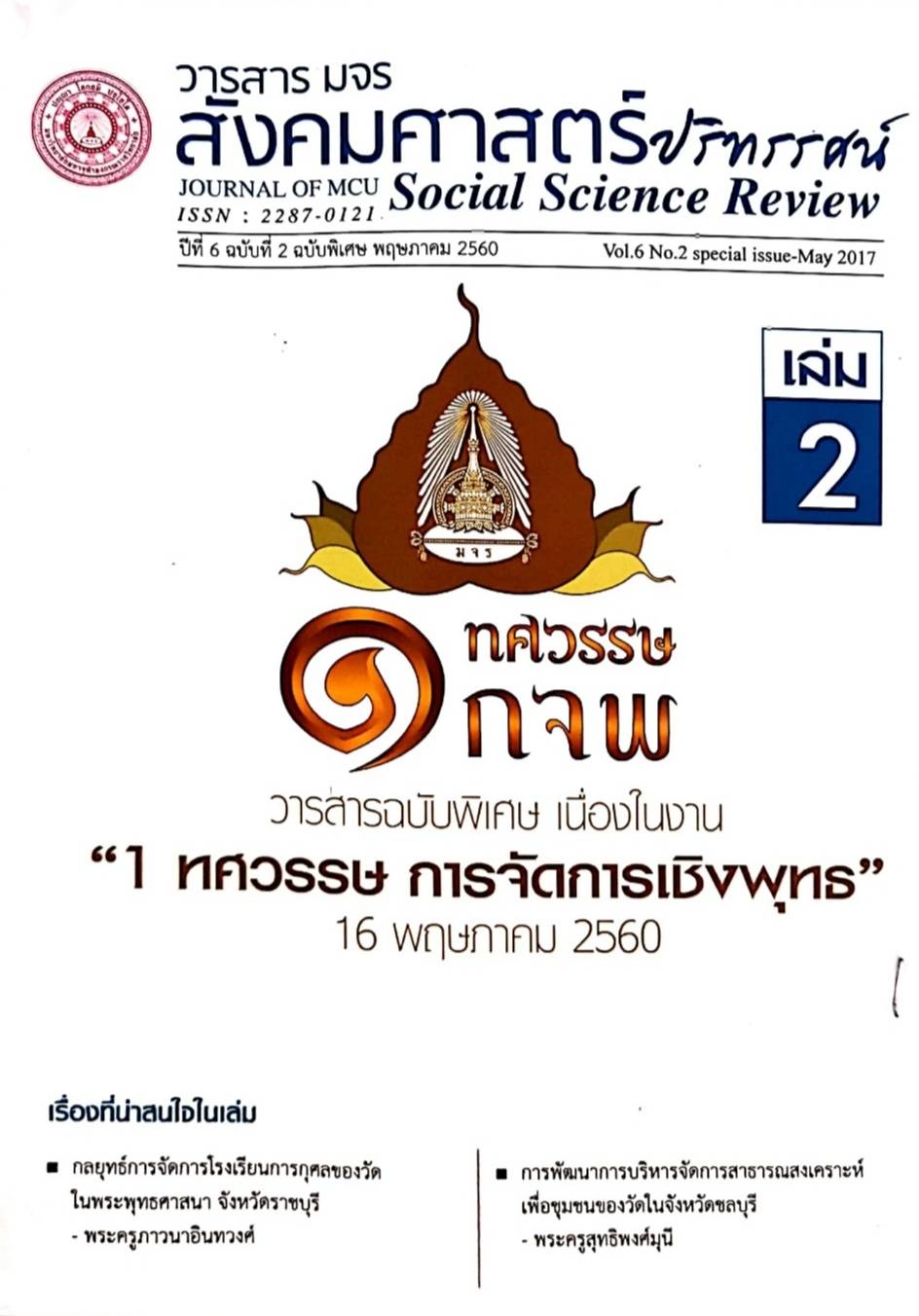Methods of Teaching English as a Second Language Including Guidelines for Language Teaching
คำสำคัญ:
Methods, Teaching, English as a Second Languageบทคัดย่อ
At present, many countries prioritized the importance of the teaching English as Second Language. Due to the advance of science, technology, and transportation, many countries were close to each otherand It became necessary to use the English language in communication. So, in order to promote the use of English learning efficiently, it was essential for everyong to know varying methods of teaching English as a Second Language. The teaching of English as a foreign language had developed several teaching methods.The article or “Methods of Teaching English as a Second Language Including Guidelines for Language Teaching” aims to present;
methods of teaching English as a Second Language, the importance of each method in teaching English as a Second Language, and summarizing about the varying methods in teaching English as a Second Language in the present
เอกสารอ้างอิง
Asher, J. 1996. Learning Another Language Through Actions (5th, ed.). Los Gatos, CA: Sky Oaks Productions.
Babu, M. 2009. Teaching of English. Centrum Press. p. 87
Carroll, J. B. 1965. The contributions of psychological theory and educational research to the teaching of foreign languages. Modern Language Journal, 49 (5).
Carroll, J. B. 1966. The contribution of psychological theory and educational research to the teaching of foreign languages. In A. Valdman 108 (Ed.),
Trends in language teaching (pp. 93–106). New York: McGraw-Hill.
Chastain, K. 1969. The Audio-Lingual Habit Theory Versus the Cognitive Code- Learning Theory: Some Theoretical Considerations. IRAL, 7 (2), 97-106.
Chomsky, N. 1965. Syntactic structures. The Hague: Mouton Decoo, W. 2001. On The Mortality of Language Learning Methods. Speech November 8
Gattegno, C. 1963. The foreign Languages in Shoools : Teaching Foreign Languages in Schools : The Silent Way Reading, UK: Educational Explorers.
Gattegno, C. 1972. Teaching Foreign Languages in Schools : The Silent Way. (2nd ed.). New York: Educational Solutions. ISBN 798-0-87825-04-2 ud
Jin, L. & Cortazzi, M. 2011. Re-Evaluating Traditional Approaches to Second Language Teaching and Learning. In Hinkel, Eli. Handbook of Research in Second Language Teaching and Learning, Volume 2. New York: outledge. pp. 558–575. ISBN 978-0-415-99872-7.
Lozanov, G. 1978. Suggestology and Outlines of Suggestopedy, New York:
Gordon & Breach. Translation of : Lozanov, Georgi (1971). Sugestologia in Bulgarian. Sofia: Nauka i izkustvo).
Nagaraj, G. 2005. English Language Teaching: Approaches, Methods, Techniques. Hyderabad: Orient Longman Private Limited.
Nunan, D. 1991. Communicative Tasks and the Language Curriculum. TESOL Quarterly. 25 (2): 279–295. doi:10.2307/3587464. JSTOR 3587464.
Richards, J. 1986. Approaches and Methods in Language Teaching. Cambridge : CUP, p.113
Richards, J. 1986. Approaches and Methods in Language Teaching: A Description and Analysis. Cambridge, New York: Cambridge University Press. ISBN 978- 0-521-32093-1.
Richards, J. & S. Rodgers, T. 2014. Approaches and methods in language teaching. Cambridge: Cambridge University Press.
Zhou, G. & Niu, X. 2015. Approaches to language teaching and learning. Journal of Language Teaching and Research, 6(4), p. 798
ดาวน์โหลด
เผยแพร่แล้ว
รูปแบบการอ้างอิง
ฉบับ
ประเภทบทความ
สัญญาอนุญาต
ลิขสิทธิ์ (c) 2020 วารสาร มจร สังคมศาสตร์ปริทรรศน์

อนุญาตภายใต้เงื่อนไข Creative Commons Attribution-NonCommercial-NoDerivatives 4.0 International License.
เพื่อให้เป็นไปตามกฎหมายลิขสิทธิ์ ผู้นิพนธ์ทุกท่านต้องลงลายมือชื่อในแบบฟอร์มใบมอบลิขสิทธิ์บทความให้แก่วารสารฯ พร้อมกับบทความต้นฉบับที่ได้แก้ไขครั้งสุดท้าย นอกจากนี้ ผู้นิพนธ์ทุกท่านต้องยืนยันว่าบทความต้นฉบับที่ส่งมาตีพิมพ์นั้น ได้ส่งมาตีพิมพ์เฉพาะในวารสาร มจร สังคมศาสตร์ปริทรรศน์ เพียงแห่งเดียวเท่านั้น หากมีการใช้ภาพหรือตารางหรือเนื้อหาอื่นๆ ของผู้นิพนธ์อื่นที่ปรากฏในสิ่งตีพิมพ์อื่นมาแล้ว ผู้นิพนธ์ต้องขออนุญาตเจ้าของลิขสิทธิ์ก่อน พร้อมทั้งแสดงหนังสือที่ได้รับการยินยอมต่อบรรณาธิการ ก่อนที่บทความจะได้รับการตีพิมพ์ หากไม่เป็นไปตามข้อกำหนดเบื้องต้น ทางวารสารจะถอดบทความของท่านออกโดยไม่มีข้อยกเว้นใดๆ ทั้งสิ้น





